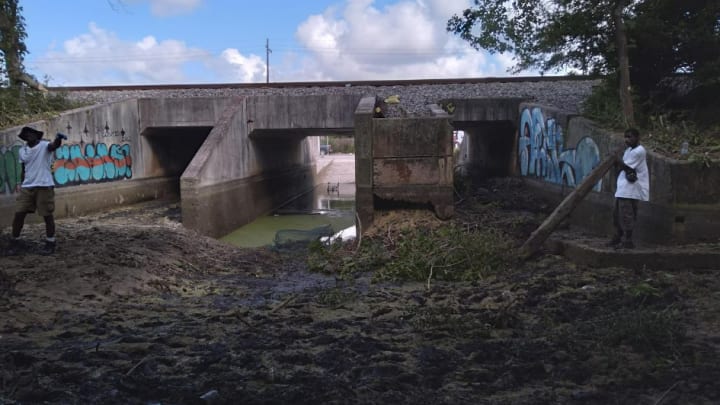Activists Revitalizing a Once Segregated and Since Abandoned New Orleans Beach

Back in the late 1930s, when segregation still existed in the United States, anyone who wanted to enjoy some time at the beach that wasn’t white had limited options. As a result, Lincoln Beach was opened in New Orleans.
When it was originally opened, it was meant to abide by Jim Crow Laws, which prohibited Black people from visiting Pontchartrain Beach. It was a vast 15-acre area that people of color could legally enjoy.
Fun could be had by all at the spot, safely with amusement rides, swimming pools, restaurants and live entertainment. Miles from the city, it gave people an escape from the urban areas.
Once segregation ended in 1964, Lincoln Beach went along with it. Damage piled up from hurricanes as tunnels flooded and the rides rusted out.
People would still visit the park given its cultural history, but that wasn’t enough for Michael “Sage” Pellet, who is an activist for Lincoln Beach and wanted to bring it back to life for everyone to enjoy.
“Lincoln Beach is a place that recognizes Black history and culture, but it also brings all people together. That's a much more beautiful thing to see.”
When the COVID-19 pandemic hit, Pellet started to frequently visit the once vibrant beach that had turned into an eyesore. But, he saw the promise that the area had and began a multi-year project to clean things up.
“I just felt a grave sense of responsibility for my elders -- who once walked the land -- to beautify it,” Pellet said. “Not only pick up the trash, but organize community.”
It didn’t take long before Pellet was joined by others who felt the same yearning to bring Lincoln Beach back to prominence. Tricia “Blyss” Wallace and Reggie Ford, an artist, joined forces with Pellet to create a grassroots campaign to get the spot open and operational.
Support quickly poured in for their efforts. In 2023, New Orleans secured $24.6 million to help fund this project. Troy Carter, a United States congressman, also secured $4.1 million in federal funding to resurrect Lincoln Beach.
“Their dedication has been instrumental in making this vision a reality, and their work serves as an inspiration to us all," Carter tells ABC News.
While many people see this as a reclamation project for a beach, it goes beyond that. As Pellet noted, “It's unifying people with civic engagement [and] civic empowerment, because we have to have a stake in our own city.”
